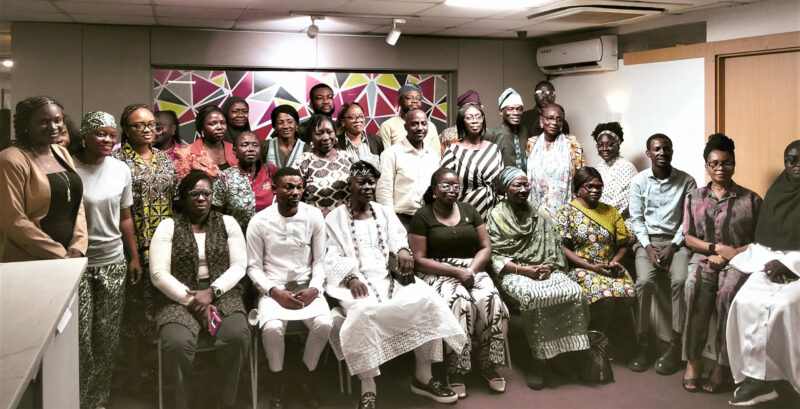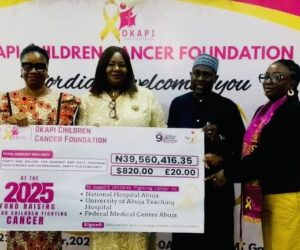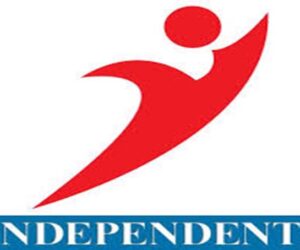1
… Rally For Accountability In Health Delivery
LAGOS – In a bid to reform primary healthcare delivery in Lagos State, Civil Society Organisations (CSOs) and key health stakeholders have reaffirmed their commitment to robust collaboration and stringent accountability mechanisms.
The resolution, reached at a Strategic Alliance meeting in Lagos, signals a new era of coordinated advocacy and transformation.
The meeting, convened by the Centre for Communication and Social Impact (CCSI) under the International Society of Media in Public Health (ISMPH) and EngenderHealth project, aims to fortify Primary Health Care (PHC) systems across the state.
Dr Veronica Iwayemi, Director of Medical Services and Disease Control at the Lagos State Primary Health Care Board, in her presentation lauded the CSOs, for their relentless advocacy, budget tracking, and resource mobilisation. Iwayemi credited CSOs with catalysing early successes, including the procurement of essential consumables at the PHC level.
“We are grateful for your continued support. You are the ones who help us reach out to chairmen, demand accountability from our Medical Officers of Health, and track our budgets. Your work has ensured sustained funding for crucial health activities,” Iwayemi declared.
In a strategic move to institutionalise excellence, Iwayemi announced the launch of a Governor’s Excellence Award for Primary Health Care Services in the coming year. The award will honour outstanding CSOs, healthcare workers, and high-performing Local Government Areas (LGAs), spotlighting those who drive health promotion, disease prevention, and community engagement. A transparent scoring template, developed in partnership with CSOs, will ensure credibility and fairness in the selection process.
Faith-Based Advocacy Gains Ground
The meeting also underscored the transformative power of faith-based collaboration. CCSI spotlighted the achievements of the Interfaith Public Health Advocacy Lagos (IPHAL), whose Chairperson, Dr Ajoke Ashiru, highlighted the critical role of religious leaders in shaping health behaviours and promoting awareness.
Ashiru noted that IPHAL has become a formidable force in addressing maternal and child health, family planning, and disease prevention, leveraging trusted religious voices to penetrate communities and shift attitudes.
CCSI representatives hailed IPHAL as a model of grassroots mobilisation, affirming that faith-based partnerships have significantly enhanced public acceptance of health interventions and fortified advocacy efforts. Participants agreed that sustained investment in communication, advocacy, and faith-driven leadership is non-negotiable for meaningful public health transformation.
Abiodun Ajayi, State Advocacy Coordinator for CCSI, stressed the urgency of harmonising fragmented efforts. “Over the past six months, the EngenderHealth-led project has engaged multiple stakeholders, but if everyone continues to work in silos, our impact will remain fragmented; like pouring water into a basket,” he warned.
Ajayi announced the formation of a unified alliance of CSOs and partners to pursue advocacy goals with a singular voice. The alliance will focus on timely release of RMNCAH+N and family planning funds, and champion gender-responsive health strategies. He called on the media to amplify the message of unity, asserting that “the interest of Lagosians must come first.”
The meeting, attended by representatives from the Bill & Melinda Gates Foundation, The Challenge Initiative (TCI), the Society for Family Health (SFH), and other partners, marks a pivotal milestone in the campaign for quality healthcare delivery in Lagos State.
Tackling Gender-Based Violence Through Community Engagement
Owolabi Olufunke, of the Family Health and Nutrition Unit at LSMOH, pointed to the entrenched culture of silence in communities. “Traditional and religious leaders often prefer to settle cases quietly. This enables perpetrators to continue unchecked,” she said. Cultural stigma remains a formidable barrier, shielding offenders and silencing victims.
Dr. Juradat Aofiyebi, Programme Manager of the Sexual and Gender-Based Violence Unit at the Lagos State Ministry of Health (LSMOH), laid bare the grim reality faced by survivors. “People usually do not report sexual and reproductive health cases,” she stated, attributing this to a pervasive lack of trust in institutions meant to protect them.
Among the most glaring failures is the limited availability of rape kits in health facilities, a basic yet critical tool for evidence collection. Compounding this is the outdated mindset of law enforcement, which still demands physical injury as proof before accepting a case. “Survivors are often made to deliver medical reports themselves to police stations,” Dr. Aofiyebi added, describing the process as emotionally exhausting and deeply discouraging.
Efforts to correct these injustices are underway, with capacity-building initiatives targeting doctors, social workers, focal persons, and police officers. But the problem is not merely procedural, it is cultural.
Pastor Bola Nuga, representing the Lagos State Accountability Mechanism (LASAM), highlighted the role of families in perpetuating this silence. “Once it’s reported, family members do everything to cover it up. They don’t want stigma for their wards,” he explained. Nuga called for a radical shift in how communities perceive justice. “Faith can be a tool for healing, not silence,” he said, urging religious leaders to speak openly about SGBV.
Collaborating the views of Nuga, Vicky Uremma, civil society advocate who cited Agege Local Government as a model of transformation. “After sustained engagement with traditional and religious leaders, the rate of gender-based violence dropped significantly. That shows advocacy works when it is rooted in community structures,” she said.
Unified Advocacy, Sustainable Health Outcomes
Beyond SGBV, the Lagos health system is buckling under the weight of rapid population growth and fragmented interventions. Dr. Folasade Oludara, Director of Family Health and Nutrition at LSMOH, lamented the strain, “Lagos receives thousands of new residents daily, which stretches our health infrastructure.”
She stressed the need for partnerships, shared accountability, and harmonised advocacy to improve outcomes in Reproductive, Maternal, Newborn, Child, and Adolescent Health (RMNCAH) and nutrition. The Lagos State Government is working to strengthen primary health care, but Dr. Oludara emphasised that civil society outreach is indispensable. “We are developing scorecards around key maternal and child health indicators, but sensitisation and community mobilisation must come from CSOs,” she said.
Olubunmi Tejumola of the Lagos Civil Society Participation for Development (LACSOP) reinforced the urgency of integration. “We can’t keep working in isolation. Nutrition, SGBV, HIV, tuberculosis (TB), and malaria are interconnected,” she said. Tejumola proposed practical strategies, including emergency phone numbers for communities to contact case managers or CSO representatives, creating real-time linkages between victims and response teams.
At the heart of this movement is the Collaborative CSO United Alliance, spearheaded by the Centre for Communication and Social Impact (CCSI). This structured platform aims to coordinate advocacy, strengthen accountability, and align messaging to policymakers.
“We’re forming a sustainable structure that coordinates all partners and prevents duplication,” explained Ajayi of CCSI. “Our goal is for CSOs to move as one, whether we are advocating for budget releases, family planning funding, or improved gender inclusion in health services.”
With the support of partners such as the Bill and Melinda Gates Foundation, the Challenge Initiative (TCI), and the Society for Family Health (SFH), the alliance seeks to influence policy through collective voices rather than competing agendas. Advocacy priorities include the timely release of RMNCAH and family planning funds, integration of gender and social inclusion, and robust accountability mechanisms for sustainable financing and implementation.
“Together, we want to ensure that the health system in Lagos remains top-notch,” Ajayi affirmed. “This isn’t about one organisation taking glory, it is about putting Lagosians first.”
The impact of the alliance is already being felt. For survivors of SGBV, a harmonised advocacy system means faster access to justice, medical care, and psychosocial support. For mothers and children, it ensures that reproductive, maternal, and nutrition interventions reach even the most remote communities.
Dr. Oludara underscored the public health benefits, saying, “Preventing complications through awareness and access is far cheaper than curing them. Collaboration ensures no woman or child is left behind, regardless of location or social class.”







